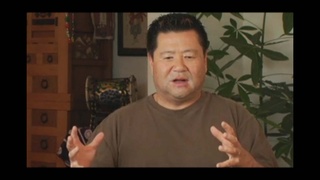Interviews
Growing up and identity
I grew up in a neighborhood, my school pretty much all the way up until college had been all Caucasians and Asians and here I am this one, only black kid in school. And actually to be honest no one really made a big deal about it. I never felt any different. I was accepted just like any other kid. I never really thought about it until college amazingly enough because you think as a child kids are so honest they just kind of will say things without thinking. But it wasn’t until college that my race was brought into question. People would say, you know why do you speak like that. Meaning not speaking like stereotypically black just having good grammar or why do you look that way. They wanted to know what I was, like why is my hair kind of straight and I think they are more interested in. I didn’t have any problems. I think they were just more interested. And I never really realized that I was different until college and I think after awhile it became an attribute because I looked a little different than everybody else. And I just think if anything it has totally enhanced my life because I try to or I feel like I get the best quality of both cultures and try to put them together.
Date: February 7, 2000
Location: California, US
Interviewer: John Esaki
Contributed by: Watase Media Arts Center, Japanese American National Museum
Explore More Videos



Support from the Japanese American community
(b.1971) Professional figure skater and Olympic gold medalist.

Heightened awareness of identity as a Japanese American
(b. 1955) Lawyer

Reasons for conformity and competitiveness in Gardena, California
(b. 1946) Lawyer






Advantages of being Nikkei (Spanish)
(b. 1950) Nisei Chilean, Businessman


Childhood shame for being Nikkei in Enumclaw, Washington
Judge, only Japanese American to serve on CWRIC.

On the Impact of the Camp Experience
(b. 1942) The first Asian American woman judge

Thoughts on the term, "Nikkei"
(b. 1949) Musician and arts educator and adminstrator.
